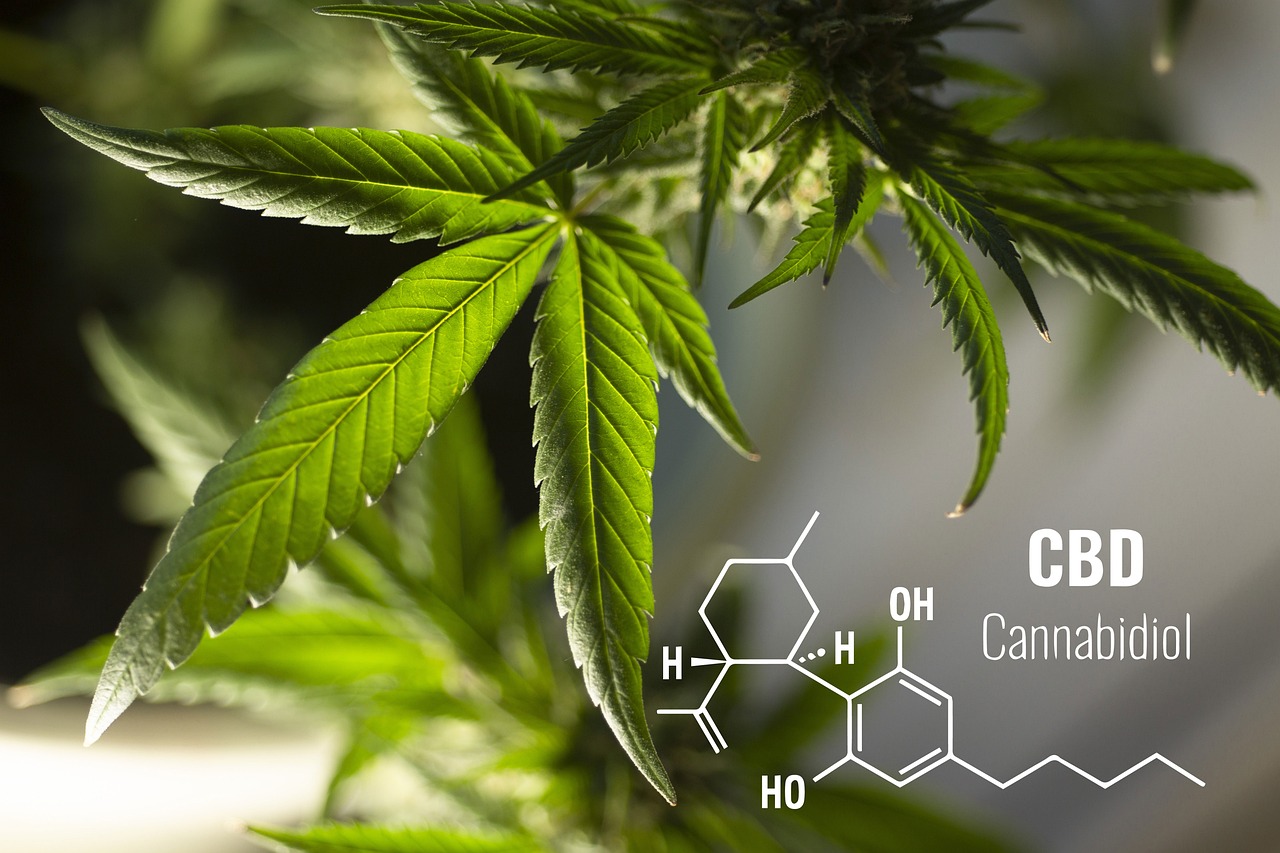CBD (cannabidiol) has emerged as a popular remedy for a myriad of health issues, from anxiety to chronic pain. As stated in a WebMD article, it is prescribed to treat epilepsy, anxiety, pain, dystonia, Crohn’s disease, etc.
However, there’s one area where its use is not that popular: gut health and digestive harmony. CBD is becoming a go-to option for those seeking relief from digestive disorders and striving for overall gut wellness.
Let’s delve into how CBD interacts with the gut, its potential benefits, and some frequently asked questions surrounding its use.
Understanding CBD and its Relationship with the Gut
CBD, or cannabidiol, has garnered significant attention for its potential health benefits, particularly about the gut. The gut, also known as the gastrointestinal (GI) tract, is crucial in digestion, nutrient absorption, and overall immune function. Research suggests that CBD may influence the gut in various ways, impacting digestion, inflammation, and gut microbiota.
For instance, findings of an MDPI study suggest that it can be effective in both natural and synthetic production. Regardless of the production method, it holds promise in modulating gut microbiota. This can influence metabolism conditions and nervous systems. Furthermore, CBD can also reduce the chances of cancer and shape systemic immune responses through the gut microbiota.
One of the primary mechanisms through which CBD may affect the gut is its interaction with the endocannabinoid system (ECS). The ECS is a complex network of cannabinoid receptors and neurotransmitters throughout the body, including the GI tract. CBD interacts with these receptors, modulating various physiological processes related to gut function.
Inflammation is a key factor in many gastrointestinal disorders, such as inflammatory bowel disease (IBD) and irritable bowel syndrome (IBS). CBD has shown anti-inflammatory properties in preclinical studies, suggesting it may help reduce inflammation in the gut.
While CBD is strongly associated with gut health, it is vital to consider its legal use in your state. Each US state can have different laws around the use of CBD. For instance, the use of hemp has been made legal in Texas since 2019. Moreover, there’s also a demand for legalizing the use of marijuana for both medical and recreational purposes. A Texas Tribune article states that 83% support its medicinal use, while 60% support its recreational use.
You should be aware of CBD’s demand and legal status in your state. According to the Texas Weed Syndicate, buying THCA (tetrahydrocannabinolic acid) flowers in the state is also legal. Similar to CBD, THCA flower has non-intoxicating, anti-oxidant, and anti-inflammatory properties. These can be beneficial for gut health.
The Benefits of CBD for Gut Health
CBD, or cannabidiol, has garnered considerable attention for its potential health benefits, including its effects on gut health. While research is still in its early stages, there are several potential benefits of CBD for gut health:
Alleviating Inflammation
Inflammation is a common underlying factor in many digestive disorders, such as irritable bowel syndrome (IBS), Crohn’s disease, and ulcerative colitis. CBD has demonstrated anti-inflammatory properties, helping to reduce inflammation in the gut and alleviate associated symptoms like pain and discomfort.
A Frontiers Journal study found that CBD can proliferate activated lymphocytes and increase the production of pro-inflammatory cytokines, such as Interleukin-10 (IL-10). IL-10 has anti-inflammatory properties that can suppress inflammation. By decreasing inflammation, CBD could alleviate symptoms of GI disorder and promote overall gut health.
Regulating Gut Motility
Gut motility refers to the movement of food and waste through the gastrointestinal tract. Abnormalities in gut motility can contribute to symptoms such as diarrhea, constipation, and abdominal discomfort. For individuals with conditions characterized by abnormal gut motility, such as diarrhea or constipation, CBD may help restore balance and promote regularity.
According to a Nature Journal study, ECS can significantly affect the regulation of motility, immune function, and gastrointestinal function. As CBD interacts with ECS, it can have a positive impact on the gut motility and the overall gut health.
Managing Stress and Anxiety
Stress is closely linked to gut health, with psychological factors often exacerbating digestive symptoms. For instance, a Nature Journal study found that chronic stress can create a biochemical cascade that reshapes the gut microbiome.
CBD has anxiolytic (anxiety-reducing) properties, which can help alleviate stress and anxiety levels. According to a MedCentral article, findings of recent research show that CBD can reduce anxiety severity. This can potentially lead to improvements in gut function and symptom management.
Relieving Pain
Pain in the gut can arise from various conditions, such as IBD, IBS, or other gastrointestinal disorders. CBD interacts with the endocannabinoid system, which plays a crucial role in regulating various physiological processes, including pain sensation.
This potential pain-relieving effect of CBD could offer relief to individuals suffering from gut-related discomfort or abdominal pain associated with gastrointestinal issues.
Frequently Asked Questions
Is CBD Safe for Gut Health?
Generally, CBD is considered safe for most individuals when used responsibly. However, it’s essential to consult with a healthcare professional, especially if you have underlying medical conditions or are taking medications that may interact with CBD.
Can CBD Help With Specific Digestive Disorders?
While research on CBD’s efficacy for specific digestive disorders is ongoing, preliminary studies suggest potential benefits for conditions like IBS, IBD, and gastritis. However, individual responses may vary, and it’s essential to manage expectations and consult with a healthcare provider for personalized guidance.
What Digestive Conditions Can CBD Potentially Help With?
CBD may offer relief for various digestive conditions, including irritable bowel syndrome (IBS), inflammatory bowel disease (IBD), Crohn’s disease, ulcerative colitis, etc. It may help alleviate abdominal pain, bloating, diarrhea, constipation, and nausea.
Can CBD Interact With Medications I’m Taking for Digestive Issues?
CBD may interact with certain medications, particularly those metabolized by the liver. Therefore, it is always advised to seek medical help before starting the use of CBD for gut health.
To sum up, CBD holds significant promise as a natural solution for promoting gut health and digestive harmony. Its anti-inflammatory, analgesic, and anxiolytic properties make it a valuable tool for managing symptoms associated with various digestive disorders.
However, further research is needed to fully understand its mechanisms of action and efficacy for specific conditions. If you’re considering incorporating CBD into your wellness routine, consult with a healthcare professional to ensure safe and appropriate use. With careful consideration and guidance, CBD can benefit your journey toward optimal gut health.




